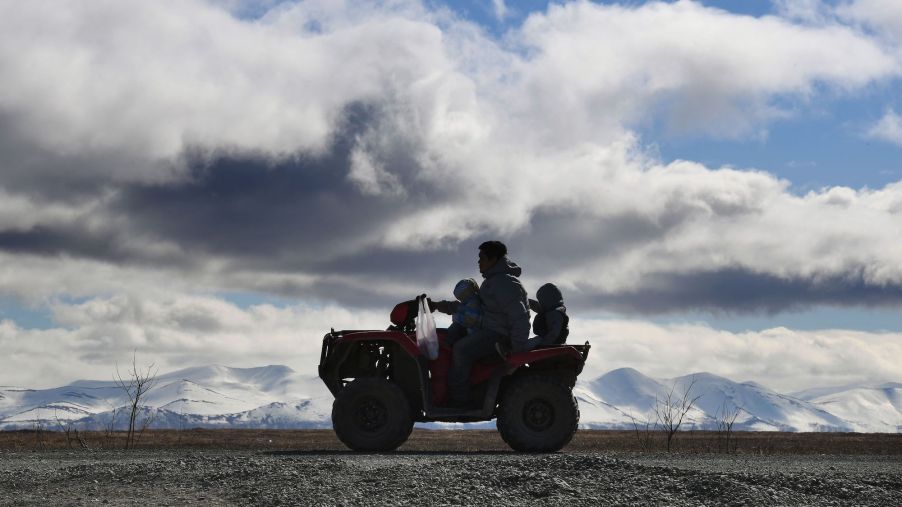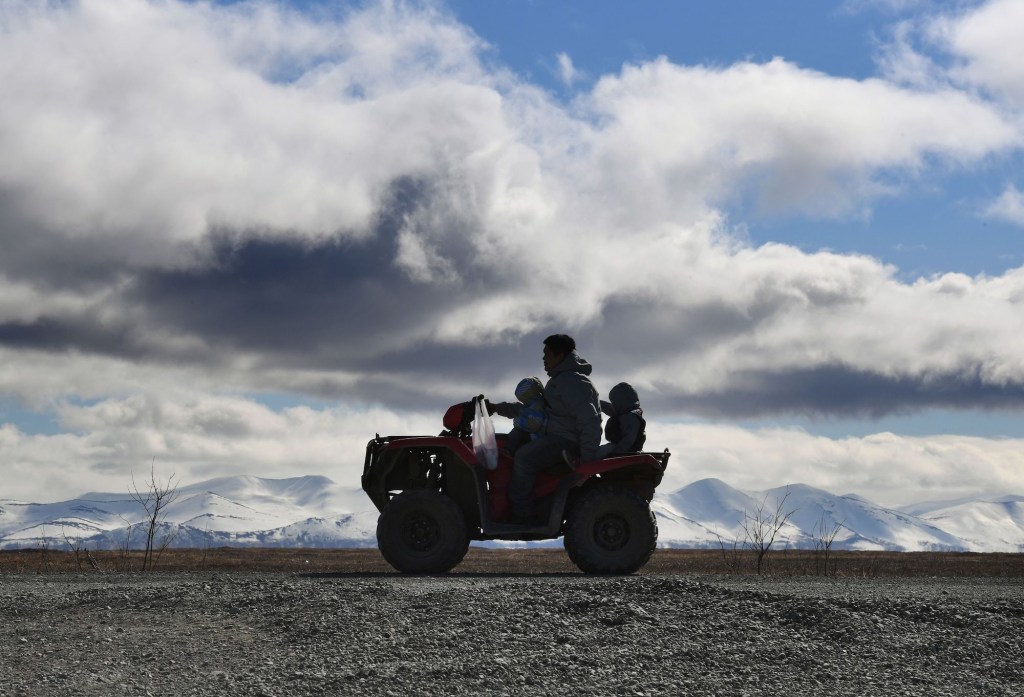
Can You Drive an ATV on the Road in Alaska?
In most parts of the country, all-terrain vehicles are used for recreation and light-duty work. But in some regions that face inclement weather throughout the year, ATVs are often a primary transportation mode. For example, states such as North Dakota and Montana present rugged terrain and long winters, making traditional vehicle travel tough.
But Alaska takes harsh climate conditions to a new level. Alaskans routinely rely on ATVs and snowmobiles to get from point A to point B. But can residents drive their ATVs on the road? Or do they face restrictions like in most other states prohibiting such vehicles on roadways?
Alaska laws dictating ATV use

Currently, Alaska is strict about allowing off-road vehicles on public roadways. Access is allowed to cross these roads but not to travel on them. According to the Alaska Highway Safety Office, the language suggests that authorities may authorize direct use in response to heavy snow accumulation or ice hazards in some circumstances. But in general, residents are prohibited from operating their quads on public roads.
A new proposal regarding ATV use
Alaska Gov. Mike Dunleavy’s administration introduced a proposal allowing off-roaders on public roads. The proposal would change current policies and remove restrictions for snow machines, ATVs, and four-wheelers, the Associated Press reports.
If the proposal passes, residents could travel on Alaska roads with speed limits of 45 mph. Other requirements would include proof of license, registration, and insurance. And each vehicle would need to be equipped with brakes, mufflers, and working lights for visibility.
Citing the necessity for more rural Alaska residents to have cheap and capable transportation, the administration is hopeful for support and adoption of this proposal.
Safety concerns take center stage
The assistant director and professor of the Center for Safety Equity in Transportation, Nathan Belz, points out a few challenges with Dunleavy’s new proposal. For example, ATVs aren’t designed for common roadway or highway usage.
Even the City of Wasilla, an Alaska community concerned with quad safety, reminds residents that four-wheelers don’t come equipped with the safety features that traditional vehicles do. The ATV operator is exposed and at risk of serious injury in the event of an accident. Even a fender-bender on a quad could be deadly, especially if the incident involves a regular vehicle.
Belz reminds Alaska legislators that traumatic injury rates would be near twice that of recreational ATV use. It’s unclear if and when this proposal will be considered. But for now, the safety concerns surrounding quad use on roads are dominating the local conversation.
An incentive for COVID-19 vaccinations
If this proposal passes, it would likely affect a majority of Alaska residents. Nearly every family has a four-wheeler of some kind. And most treasure these off-road vehicles much as others do with their traditional cars and trucks. They’re so popular that Alaska used ATVs to incentivize state residents to get their COVID-19 vaccines.
News Minor reported details of the state’s initiatives to promote vaccinations. While some U.S. states launched lotteries and offered scholarships for students, Alaska knew its residents would appreciate something different. Motivation for vaccination would come in the form of pounds of halibut and king crab. Other vaccinated individuals would be eligible to win gallons of gas and heating oil. And, yes, some would get snow machines and ATVs as rewards for vaccination.
The latest headlines say that while Alaska still prohibits direct roadway access to ATV operators, changes could be on the horizon. Other states, including Idaho and Arizona, already offer the option of certifying off-road vehicles as street-legal machines. Considering the increased need for general transportation quad use in a state like Alaska, it makes even more sense to allow the same.


